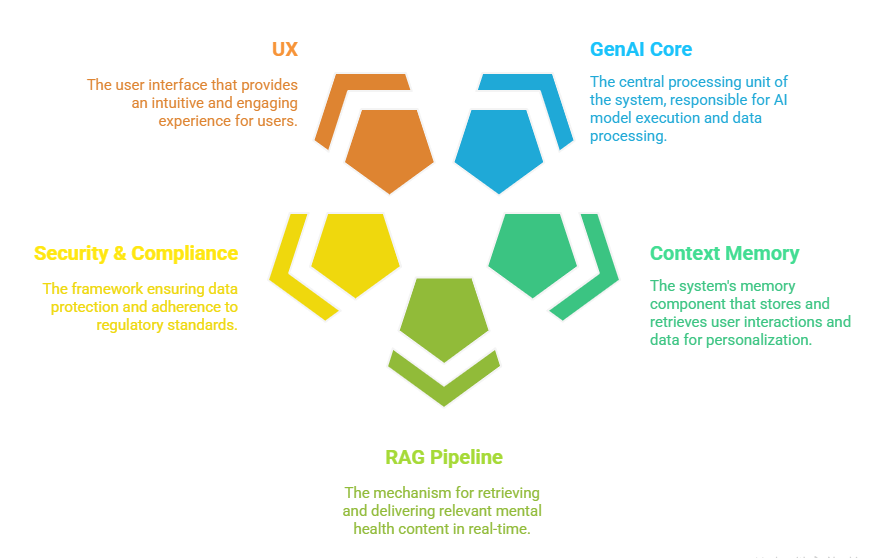Client and Context: From Paper Trails to Personalized Mental Health AI
Nearly 1 billion people worldwide live with a mental health disorder, yet the average ratio is just 4 nurses and 1 psychiatrist per 100,000 people.
Long wait times, stigma, and the surge of impersonal chatbots leave most sufferers without timely, human-like support.
Tranquilla.ai, built with MResult, fills that gap by delivering empathy-driven, always-on assistance through Generative AI.
Challenges: Provider Shortages & Robotic Bots Block Care
- Severe shortage of licensed professionals; 70 – 92 % of patients in India receive no adequate care.
- Existing digital tools often feel scripted, lack emotional depth, and struggle to sustain a therapeutic relationship.
- Economic hit: 12 billion workdays lost yearly to depression and anxiety.
Solution: Personal Comfort Agents: Empathetic, Context-Aware, Secure
- Custom-Trained LLMs + Emotion Recognition for genuine, non-judgmental dialogue.
- Contextual Memory retains conversation history, creating continuity like a counselor.
- Retrieval-Augmented Generation (RAG) surfaces clinically vetted guidance in context.
- Cloud-native, privacy-first architecture scales instantly while safeguarding protected health information (PHI).
Benefits: Single Sessions: Ongoing, Personalized Support
- 24 / 7 access in any channel (mobile, web, voice).
- Human-like empathy reduces stigma of “seeing a therapist.”
- Consistent memory saves users from “starting over.”
- Data-driven triage routes critical cases to professionals faster.
- Digital care lowers cost per interaction vs. in-person visits.
- Employers report higher productivity & retention through wellness programs.
Technology Overview

Impact: Democratizing Mental-Health & Hitting SDG 3
- Addresses a USD 43.9 billion global digital mental health market by 2033.
- Fits wellness, veterans, universities, and insurer ecosystems without added facilities, cutting carbon from travel.
- Directly supports UN SDG 3 (Good Health) and SDG 9 (Industry, Innovation).
- Early pilots show a reduction in anxiety scores and self-reported absenteeism.



